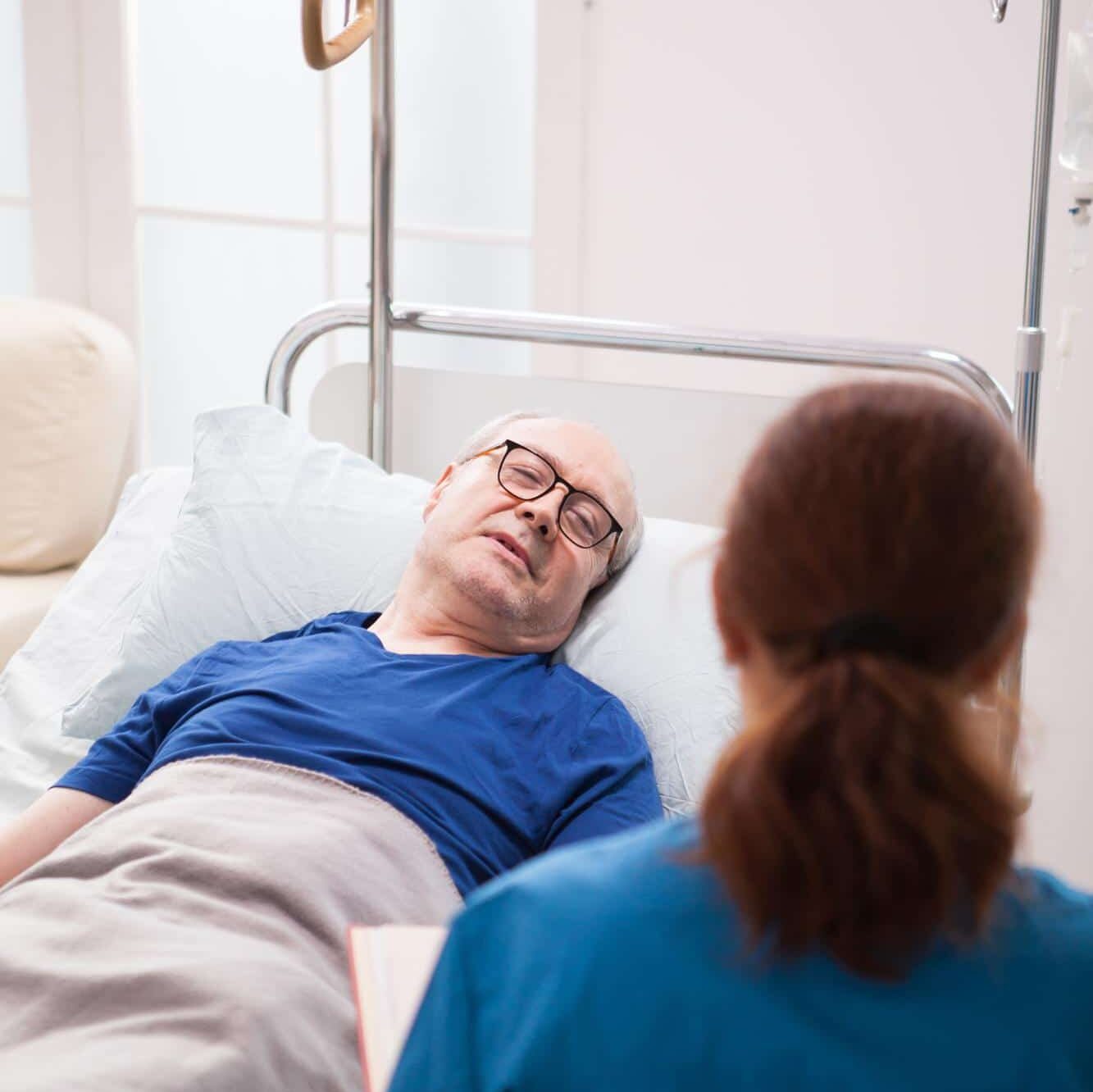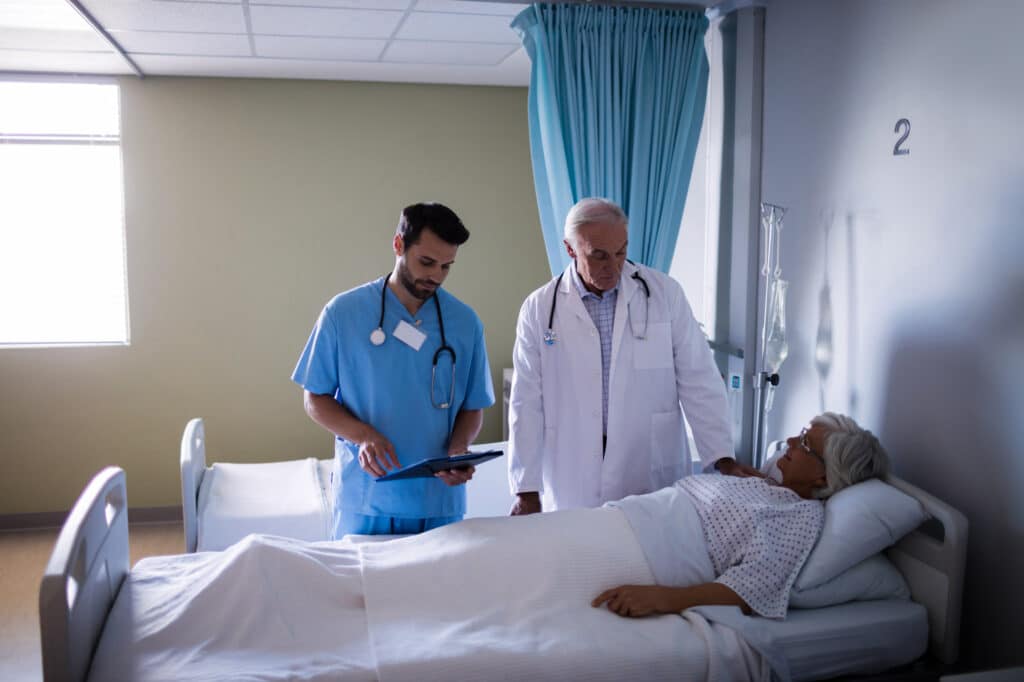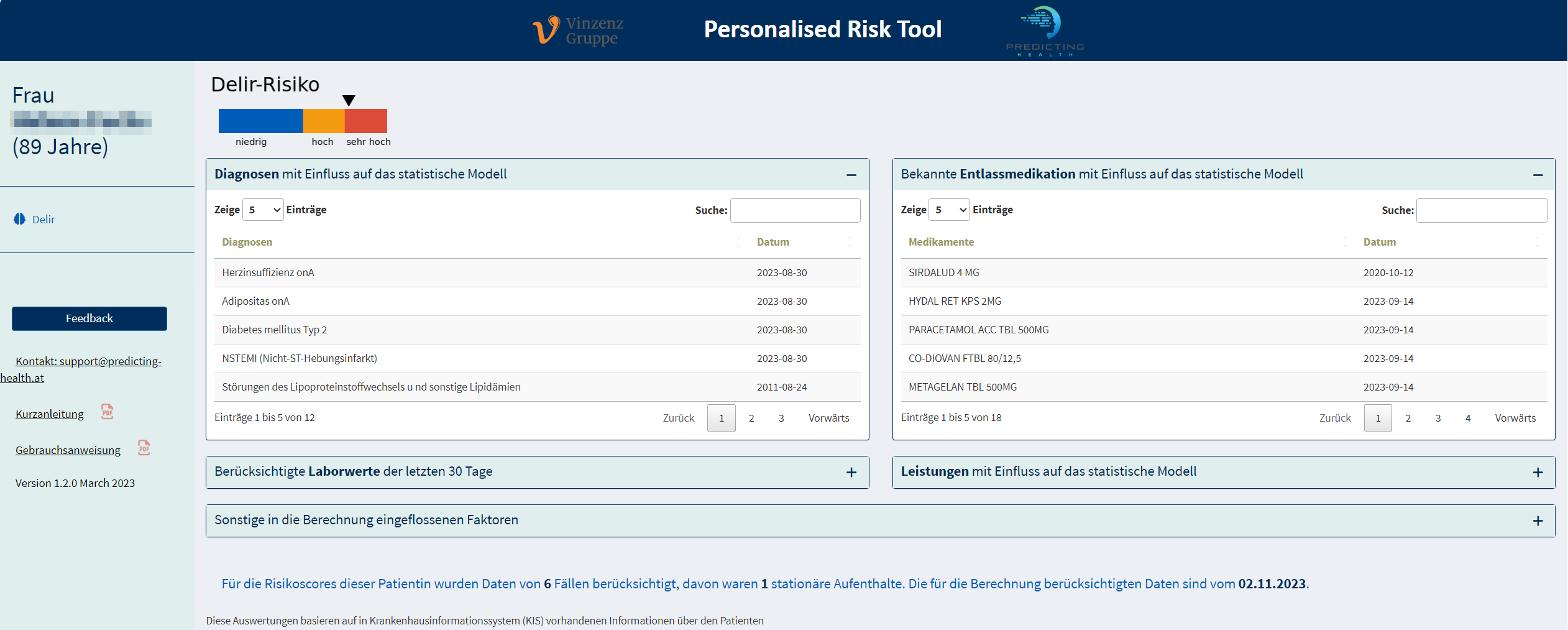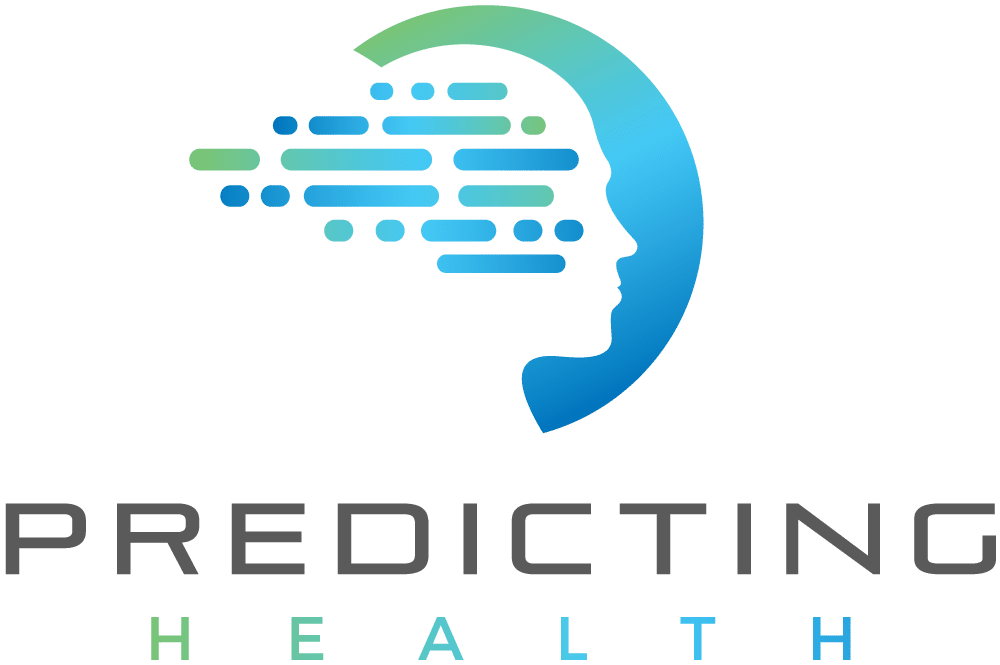Automated delirium screening
Delirium is a serious syndrome in elderly patients. Delirium is an acute, organically induced impairment of the brain. Affected persons react inappropriately to environmental stimuli, appear confused and are unable to orient themselves.
For many patients, this state of acute confusion leads to massive complications, prolonged hospital stays and even death.
Up to 49 percent of all hospital patients suffer from delirium
… which in many cases could be prevented by targeted measures.
Based on automated screening, high-risk patients can be identified at an early stage and receive targeted preventive treatment.

Preventive measures can avoid the serious consequences of delirium in almost all cases.
Delirium | the problem
If left untreated, delirium leads to a significantly higher risk of suffering complications or even dying during hospitalization.
According to studies, delirium prolongs hospital stays by three to 13 days. The one-year mortality rate is currently estimated at around 35-40%.

Preventing delirium can therefore avoid additional work for hospital staff.
Many cases of delirium can be prevented or mitigated by non-pharmacological interventions (e.g. increasing visual and hearing aids, hydration, reorientation to the environment, bedtime protocols, noise reduction).
Targeted, early treatment of patients with an increased risk of delirium is therefore of crucial importance for patients, relatives and caregivers.

Recognizing the risk of delirium at an early stage
Preventive measures can prevent delirium in up to 40% of cases or reduce the severity of delirium, thereby also reducing the mortality rate and subsequent effects.
The challenge is therefore to identify at-risk patients at an early stage. This is where established scores (e.g. CAM, DOS or 4AT) reach their limits, as they are too time-consuming for risk assessment and are used to assess the initial signs and symptoms of delirium rather than to classify a risk.
Delirium risk solution: Our PRT – Recognize delirium module
Our fully automated risk screening based on the data collected in the routine documentation enables preventive measures to be implemented in a targeted and therefore resource-saving manner.

We carried out the first implementation of our delirium algorithm back in 2018 and have since been able to prove the performance of our approach in clinical operations in several studies. Our algorithm recognizes over 80% of at-risk patients (AUROC: 0.883) during inpatient admission and thus enables preventive measures to be taken at an early stage.
Revolutionize patient care in your hospital with Predicting Health.
Contact us today to find out more about our customized solutions.


